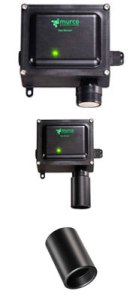Jul 28 2010
The extensive use of carbon dioxide in refrigeration is likely to benefit from the novel gas detection technology which facilitates leaks to be tracked and monitored even at low temperatures as - 40° C.
 gas sensor
gas sensor
This breakthrough gas sensor technology avoids the health hazard involved in utilizing CO2, a dangerous, odourless gas in enclosed settings, and enables it to be used as a refrigerant in industrial and commercial applications.
The novel CO2 gas sensor, which is marketed and developed by Murco Gas Detection throughout the world, is based on sophisticated infrared detection technology using a new optical design that is sensor based. One of the advantages of this sensor is that it facilitates for a small-sized housing. Instead of using ABS plastic, the new sensor of Murco Gas Detection utilizes a stainless steel case. This robust enclosure of the sensor makes it ideal for applications in environments including cold stores and machine rooms.
Available in ATEX and IP66 versions, the new CO2 gas detector can function in temperatures ranging - 40° C to + 50° C. Monitoring of pressure relief valves in vent pipes can also be using this sensor. The novel CO2 gas detector’s performance range covers levels of concentration from 0 ppm to more than 10,000 ppm.
All products of Murco Gas Detection feature constant system fault and power monitoring. The Murco Sensor Transmitter series comprise advanced semiconductor, catalytic, infrared and electrochemical models for detecting gases in any room, region, airspace, zone or airflow.